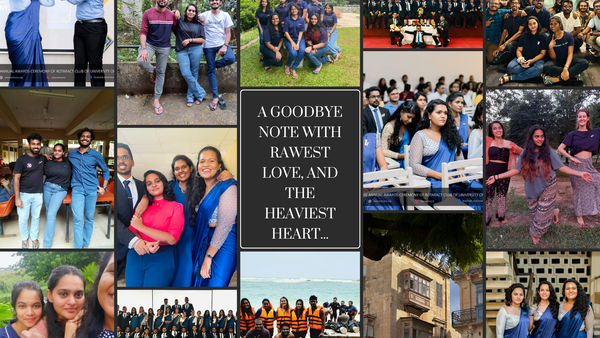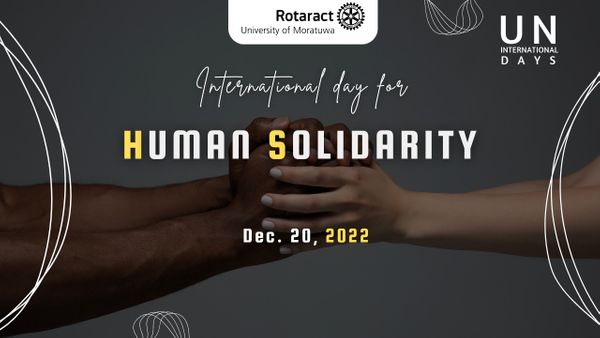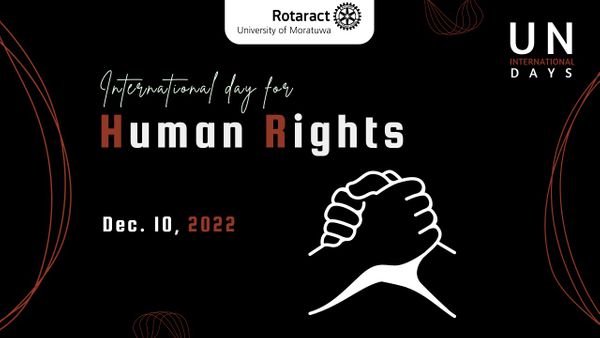A Terrorism Free World...
What do you wish for when you rest your head on the pillow at night? That you would be able to get some extra hours of sleep? or that the lecture or the exam on the following day would be postponed?
Sadly, not everyone can relate to this. Out there, thousands and thousands of innocent people rest their heads full of unrestful thoughts at night with the only hope of being able to wake up the following morning. Why? Because they are potential victims of terrorism or have already had traumatizing experiences with terrorism.
Although widely and frequently used, defining the term terrorism is difficult mainly because it covers a broad scope of violence. One accepted definition for terrorism given by the Global Terrorism Database (GTD) is “the threatened or actual use of illegal force and violence to attain a political, economic, religious, or social goal through fear, coercion, or intimidation.”
Terrorist activities may arise due to extremist groups attempting to establish their ideologies, ongoing civil wars, or even political conflicts. We as Sri Lankans are familiar with the first two types of terrorist activities. Until May 2009 we experienced terrorist activities because of the civil war and in 2019 on that fateful April day, we faced a series of terrorist attacks carried out by an extremist group.
The world at large has experienced a fair share of terrorist activities as well. The September 11 attacks are considered the worst terrorist attack in the history of the US. Numerous terrorist attacks took place in several European countries during the period 2014-2016. Statistics show that an approximate number of 271,000 people have died due to terrorist attacks around the world between 2000-2017. Another evident trend of terrorist activities is that it is geographically focused because, in 2017 alone, 95% of the deaths related to terrorism have occurred in the Middle East, Northern Africa, or South Asia where civil wars and political crises are still going on, even as of 2021.
There is not always a clear-cut boundary between terrorism and other forms of conflict like civil war and violence targeting civilians. Kofi Annan, who served as the seventh Secretary-General of the United Nations defined terrorism as, “any action constitutes terrorism if it is intended to cause death or serious bodily harm to civilians or non-combatants.”
The sheer brutality, devastation, and the negative psychological impacts that extend beyond the immediate victim or target are some of the key characteristics of terrorism. These are the exact reasons why terrorism must be stopped.
However, stopping terrorism is not an easy task. Most countries have ratified the concept of counterterrorism where they use military tactics and techniques, intelligence agencies, and law enforcement to neutralize terrorists and their organizations. Even though such measures have been effective in diminishing the possibility of terrorist activities, they could not be the ideal way to eradicate terrorism.
Terrorists are not born; they are grown. It is distressing, even to imagine the amount of misinformation and hatred that must be fed into a person’s mind to make them insensitive to a point that they do not hesitate in harming another living human being. Therefore, the best solution for counterterrorism is proper education. Malala Yousafzai, the youngest Nobel Prize laureate states, “With guns, you can kill terrorists, with education, you can kill terrorism.” Educating a person with the importance of peace, love, societal values and empathy will reduce the chances of them being inclined to partake in terrorist activities. After all, as Noam Chomsky says, “Everyone’s worried about stopping terrorism. Well, there’s an easy way: Stop participating in it.”
If achieving a state of a terrorism-free world, translates to erasing the existence of present and prospective terrorists, it is hardly that such a state will ever be achieved. We must learn how to value every human being’s right to live, their right to freedom and learn to love and respect them. It is not something that can be forced upon a person, but something that should be realized from within.
The first step towards a terrorism-free world is to identify that above all the barriers that separate us – race, religion, nationality, or complexion, is the one fundamental thing that unites us; that we are all human and that we are all equal.




